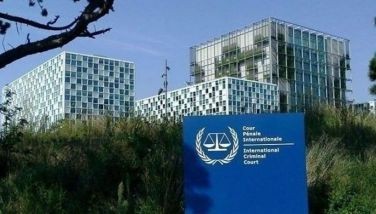More groups appeal SC ruling on Cybercrime Law
MANILA, Philippines - The Supreme Court (SC) has been flooded with appeals regarding its ruling last month that upheld the constitutionality of key provisions in the controversial Republic Act No. 10175 or Cybercrime Prevention Act, including the criminalization of online libel.
Several petitioners in the case – mostly groups from media, legal community and academe – filed motions for reconsideration over the high court’s dismissal of their constitutional questions on provisions of RA 10175.
The groups insisted section 4 (c) (4) of the law, which penalizes acts of libel as defined in Article 355 of the Revised Penal Code committed through a computer system, is unconstitutional due to “vagueness and overbreadth.â€
Petitioners reiterated the same argument for sections 5 and 6 of the law, which penalizes aiding or abetting the commission of cybercrime and applies penalties one degree higher as compared to the Revised Penal Code, respectively.
They said sections 13 and 15, that respectively allow preservation as well as search and seizure of computer data, violate the constitutional right to due process and the right against unreasonable searches and seizures.
The motions were filed by a group of students and members of academe led by the Kabataan party-list, UP law professor Harry Roque Jr., the National Union of Journalists of the Philippines, the National Press Club of the Philippines, officers of the Philippine Bar Association and militant groups led by Bagong Alyansang Makabayan (Bayan).
A source said the bid for reconsideration of the SC ruling might be a “long shot,†as he noted that the margins of voting of justices on this case were “very clear,†making reconsideration less likely.
In the assailed ruling, the high court dismissed the constitutional questions raised on at least 22 provisions of RA 10175.
Among the key provisions declared constitutional by the SC were those that penalize illegal access, data interference, cybersquatting, computer-related identity theft, cybersex, child pornography and one that allows search and seizure of computer data.
The SC declared the imposition of cyber libel on “original author of the post†is constitutional, noting that the same is unconstitutional when it penalizes those who simply receive the post and react to it.
This means only the source of a malicious e-mail, post on Facebook or any websites, tweet on Twitter can be held liable under RA 10175.
The high court also declared constitutional the imposition of penalty on those aiding or abetting the commission of cybercrime under section 5 of the law.
The SC declared unconstitutional three other assailed provisions of the law: section 4 (c) (3), which penalizes unsolicited commercial communication; section 12, which authorizes the collection or recording of traffic data in real-time; and section 19, which authorizes the Department of Justice to restrict or block access to suspected computer data.
The high court voided section 7 of the law, which allows prosecution of online libel and child pornography both under RA 10175 and RPC. The court said such provision violates the constitutional right against double jeopardy.
- Latest
- Trending























